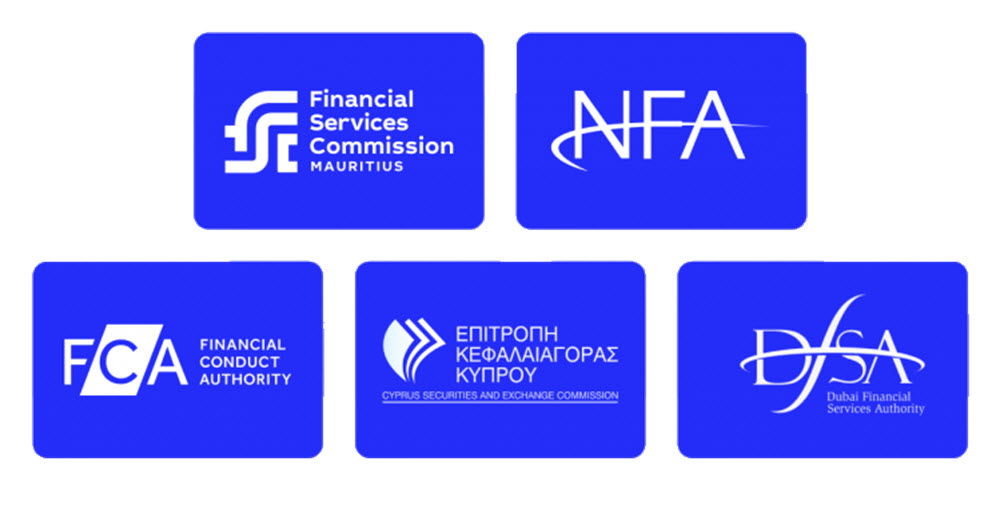In this article:
What are Forex Regulators?






Forex regulators are governmental or independent entities engaged in the overseeing and regulation of the foreign exchange (forex) market. They can help ensure that forex trading is conducted in a fair, transparent, and secure manner, protecting traders and maintaining market integrity.
Reputable forex regulators play a critical role in maintaining the integrity and transparency of the forex market. By enforcing regulations, monitoring brokers, and protecting traders from fraud, these regulatory bodies help ensure a secure and fair trading environment.
As a trader, it is important to research where and how a broker is regulated and if the applicable regulator is considered reputable. Some brokers proudly proclaim that they are regulated, but when you scratch the surface you find out that the so-called ”regulator” is just a private business organization with neither the legal powers nor the serious inclination to actually safeguard traders.
It is also important to understand that even among the governmental regulators, the framework can vary significantly, and the rules for trader protection can be very different from one regulator to the next. There are also regulators who seemingly have a very sound set of rules in place but who simultaneously have precious few resources available actually to investigate possible breaches – or are based in a jurisdiction where the political will actually to enforce the broker regulation is lacking.

Examples of Major Forex Regulators
United States
- Commodity Futures Trading Commission (CFTC): Oversees the U.S. derivatives markets, including forex speculation using derivatives. Ensures fair trading practices and protects traders from fraud and abuse.
- National Futures Association (NFA): A self-regulatory organization that develops rules and programs to safeguard market integrity. It was created by the CFTC in 1981 and began regulatory operations the following year.
United Kingdom
- Financial Conduct Authority (FCA): Regulates forex brokers and ensures they comply with stringent standards to protect traders and maintain market stability.
European Union
- European Securities and Markets Authority (ESMA): Ensures consistency in regulatory practices across EU member states, promoting transparency and protecting investors.
- Cyprus Securities and Exchange Commission (CySEC): Regulates forex brokers in Cyprus, a popular jurisdiction for forex trading firms.
Australia
- Australian Securities and Investments Commission (ASIC): Regulates forex brokers and ensures they operate in a fair and transparent manner, protecting traders from unfair practices.
Japan
- Financial Services Agency (FSA): Oversees the financial markets, including forex trading, ensuring compliance with regulations and protecting investors.
How Forex Regulators Can Protect Traders
Regulatory Oversight
Regulators can monitor forex brokers to ensure they comply with regulations designed to protect traders and maintain market integrity. This includes checking for proper licensing, financial stability, and adherence to ethical practices.
Enforcing Transparency
Regulators can enforce rules that require brokers to provide transparent information about their services, fees, and trading conditions, allowing traders to make informed decisions.
Protecting Against Fraud
Regulatory bodies can take action against fraudulent activities and unethical practices, ensuring that traders are protected from scams and financial misconduct.
Dispute Resolution Services
Many regulators offer dispute resolution services, providing a platform for traders to resolve conflicts with brokers in a fair and timely manner.
This article was last updated on: October 14, 2024
